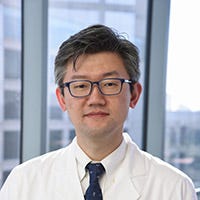Hao Zhu has joined our Scientific Advisory Board
Alongside the launch of our therapeutic program in hepatic metabolism, we’re excited to welcome Hao to the team.
Hao’s work was one of the inspirations for our program. Over the past five years, his group has developed a set of genomic tools to explore the effect diverse genetic perturbations on hepatocyte function in vivo. Rather than asking one question at a time, his team demonstrated that hundreds to thousands of hypotheses can be tested in a single mouse liver using pooled screening approaches. These experiments have already revealed disease mechanisms and therapeutic targets.
We’re excited to work with Hao to develop reprogramming medicines for the aging liver using similar approaches to explore many reprogramming interventions in parallel.
About Hao Zhu, MD
See Hao’s profile from the University of Texas Southwestern, paraphrased below
Hao is a Professor at the University of Texas Southwestern where he holds the The Nancy B. and Jake L. Hamon Distinguished Chair in Therapeutic Oncology Research. In addition to running a prolific research laboratory, Hao cares for hepatocellular carcinoma patients at Parkland Memorial Hospital.
Using the liver as a model system, the Zhu laboratory is trying to elucidate how injury, regeneration, and wound healing influence organ function and cancer formation. They believe that understanding somatic mosaicism will be a key genetic strategy to deconvolute the complexity of wound healing and are using human genomic approaches, in vivo genetic screening, and lineage tracing to understand the functional implications of somatic mosaicism in chronic liver disease and liver cancer.
Prior to UT Southwester, Hao earned his bachelor’s degree in biology from Duke University, followed by an M.D. from Harvard Medical School and MIT. He underwent clinical training in internal medicine at the University of California, San Francisco, and medical oncology at the Dana-Farber Cancer Institute. Dr. Zhu completed postdoctoral research in George Q. Daley’s laboratory at Boston Children’s Hospital.


